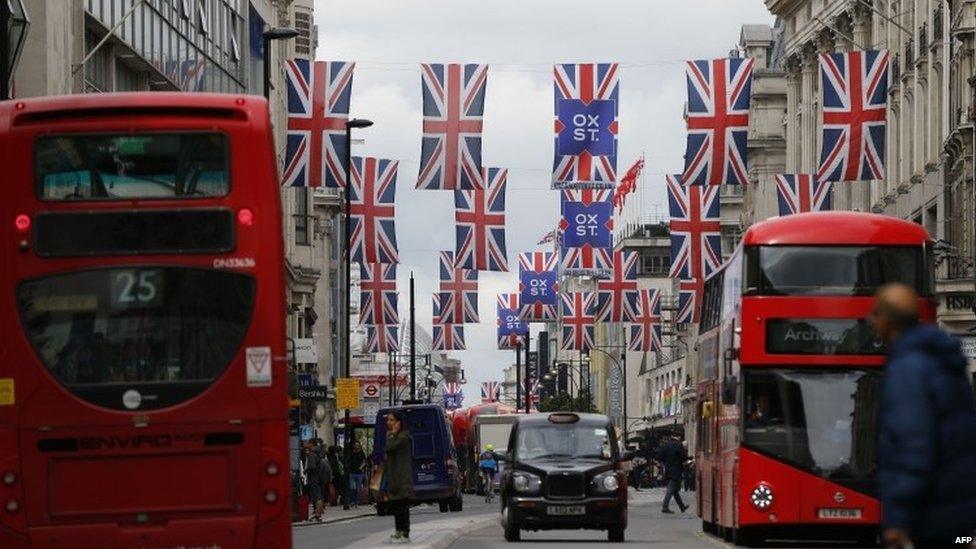Brexit: UK contributions to EU 'could continue' after exit
- Published

The UK may have to contribute to the EU's budget after leaving unless a deal is done, peers have been told.
European legal experts said the UK may still be liable after Brexit because of "concrete" obligations entered into.
Professor Takis Tridimas, from Kings College London, said commitments the UK had made under the EU's budgetary system would have to be "honoured".
The EU's current Multi-Annual Financial Framework, which sets a seven-year ceiling on spending, runs until 2020.
This has raised the question of what will happen if the UK leaves in 2019.
The UK is expected to begin official Brexit negotiations this Spring, with the talks scheduled to last two years.
Ending Britain's annual financial contributions to the EU was one of the key arguments during the referendum campaign, with Brexit supporters arguing money could be better spent on the NHS and other UK priorities.
The UK government has not ruled out voluntarily contributing to remain part of certain EU programmes, such as the student project Erasmus or Horizon, after Brexit.
But the more controversial issue of whether the UK may have to contribute to the EU's budget for a short period after it leaves has yet to be addressed.
'Unforeseeable'
Prof Tridimas chair of European law at Kings College London, told the Lords EU Financial Affairs sub-committee that the UK had signed up to commitments under the Multi-Annual Financial Framework (MAFF), which was unanimously agreed by member states in 2013, until 2020.
While there was no precedent for a member state leaving, he said he believed these commitments were legally binding under existing EU treaties and the terms of the UK's entry into the then European Economic Community in 1972.
However, he said they could potentially be amended in "unforeseeable circumstances", if all member states agreed.
"MAFF can be revised and I think Brexit is grounds for revision," he told peers. "But to my mind unanimity will be required to affect it."
Pressed by committee chair Baroness Falkner whether it could be resolved as part of the Brexit negotiations, he said there was a "good possibility" of a deal.
"It would be wise to have one," he said. "It would be in the interests of both parties and will save a lot of trouble if it were to be achieved."
'Golf club analogy'
Rhodri Thompson, a barrister from Matrix Chambers, said that the UK may face a "significant liability" that could end up being decided by the courts.
He told the peers there was likely to be an "interesting" political discussion in 2018-9 about whether the question of outstanding payments fell within the jurisdiction of the British courts or the European Court of Justice.
"It will raise some rather familiar issues, namely who sets the terms of the deal, who is responsible for interpreting the deal and how much it will cost?" he said.
He raised what he said was the "golf club analogy" where a member who cancelled their subscription after a week was told "tough luck" by the authorities and asked to pay their dues for the remainder of the period.
Former cabinet secretary Lord Butler noted that the EU's annual budgets were agreed separately under the auspices of the MAFF and that, under the EU's rules, if no agreement was reached in any one year, the budget defaulted to one based on the previous year's agreement.
"If the UK was to withdraw in 2019 as subscriptions stopped, the EU could presumably set a budget without changing the MAFF," he asked. "Suppose there was no agreement on the 2020 budget and one defaulted to... 2019, is there any way the UK could be made liable for its contribution to the 2020 budget?"
Prof Tridimas said it was "not unreasonable" to take the view this might be the case.
- Published10 January 2017

- Published30 December 2020

- Published24 November 2016
